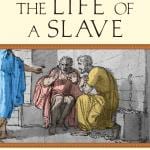The Philippians were Roman Citizens, Right?
I often hear preachers and Bible teachers say these things:
-
Philippi was a Roman colony in Paul’s time (which is true)
-
The colony was established in large part by Roman veterans who were given Roman citizenship (also true)
-
Therefore, the inhabitants were Roman citizens (not so fast…)
That (3) statement is not a foregone conclusion however. You see, in 2020 USA, we can assume that most residents of a town are citizens. But it was not this case in the Roman world of the New Testament. Some people were categorically barred from citizenship, such as slaves, and there were a lot of slaves. Secondly, as Rome conquered and took control over various cities across (modern) Europe, they allowed those native inhabitants to stay, but they were given the label peregrini (non-citizens, outsiders, aliens) rather then cives (citizens). In Roman Philippi, yes you had some cives, but you had plenty of Greek and Thracian inhabitants who were peregrini.
We learn from remains discovered in Philippi that many honorific inscriptions boasted of a person’s social status, including citizenship, which obviously means not everyone had it. You could become a citizen, but it was not a “given” in Philippi and did not translate into the majority of Philippian inhabitants. Peter Oakes estimates only 30-40% of the Philippian church would have been Roman citizens.
But, you might ask, doesn’t Paul’s letter to the Philippians use a lot of political/civic imagery? Yes, it does, at least more than a text like Galatians. But why then? Some scholars have made the case that even though the majority of Philippian inhabitants were non-citizens, they may have desired Roman citizenship and admired Roman civic culture.
For more information on this question of Roman citizenship in Roman Philippi see Oakes, From People to Letter, Hellermann, Reconstructing Honor in Roman Philippi, and the essay by Cedric Brelaz called “First-Century Philippi: Contextualizing Paul’s Visit,” in The First Urban Christians, vol 4: Roman Philippi.
You can also check out our discussion of this and more contextual matters in our new commentary on Philippians.














